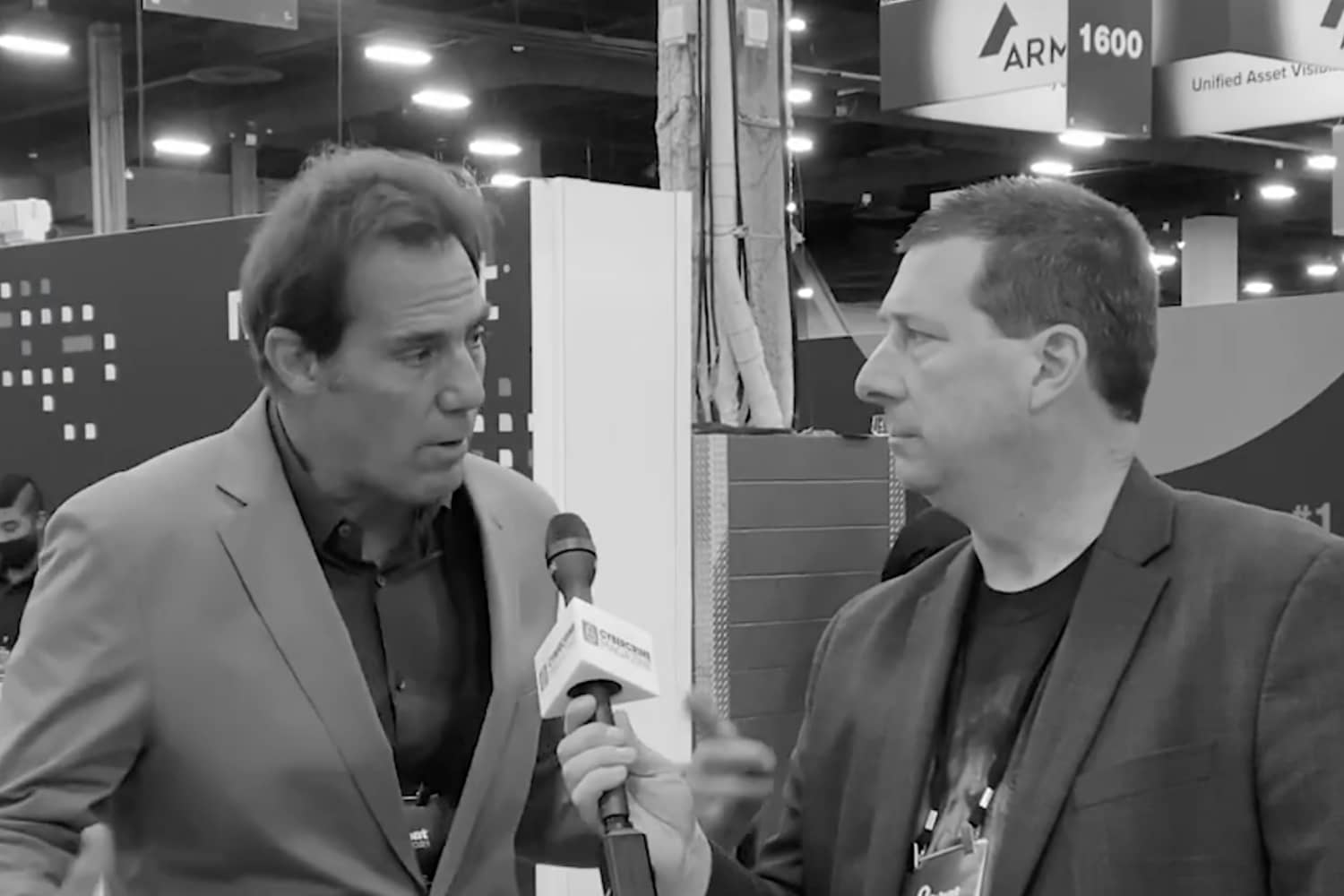
12 Aug Cybersecurity: A Crowd, A Cloud, And AI
NightDragon founder Dave DeWalt hunted startups at Black Hat USA 2021
Melbourne, Australia – Aug. 12, 2021
Returning to Las Vegas after a two-year absence, the opportunity to once again meet in person generated “amazing” energy, venture capitalist Dave DeWalt has said as the cybersecurity community took a significant step towards returning to face-to-face meetings.
“I was thinking maybe there wouldn’t be so many people here at Black Hat,” he told Cybercrime Radio while walking the floor at the Mandalay Bay Convention Center, “but the crowd is pretty good.”
“It’s a fun atmosphere and there is a lot happening at the show.”
Yet fun is only part of the goal for DeWalt, whose work as founder and managing director of NightDragon has propelled the company from strength to strength as it joins forces with cyber scale-ups in a portfolio of 15 companies that continue to push the vanguard of cybersecurity.
NightDragon’s focus on threats and key industry trends, DeWalt said, has been driven by an investment focus based on what he calls the “rule of three.”
“You’ve got to have a crowd, you’ve got to have a cloud, and you’ve got to have AI,” he explained.
“It sounds simple, but cloud-based management, cloud-based deployments with a crowd empowerment — crowdsourcing around it, so you can learn. And the underpinning of learning is AI and ML technology.”
“Take a look at some of the most powerful companies in the world,” he continued. “They leverage the crowd, and the cloud for scale, and they use AI. It’s the future of cybersecurity.”
Reviving the startup culture
As a long-running figurehead of the VC world, DeWalt has been recognised for his success in picking winners. The company previously helped lead the likes of FireEye, Five9, Forescout and Jive to IPOs, and has accomplished a number of other significant exits.
The company’s current portfolio includes HawkEye, iBoss, Onapsis, SafeGuard Cyber, Source Defense and vArmour — with more to come after NightDragon secured a $750m growth fund, NightDragon Growth I, that will invest in and advise late-stage and growth companies.
That level of funding put DeWalt on the hunt at Black Hat 2021, where startups and scaleups mingled among the big guns of an industry that had to adapt to long-distance relationships even as the pressures of the COVID-19 pandemic pushed cybersecurity investment to unprecedented levels.
The world was predicted to spend $1 trillion cumulatively on cybersecurity products and services over the five-year period from 2017 to 2021, Cybersecurity Ventures predicted, which includes segments such as cloud security, data security, infrastructure protection, and identity and access management, consumer security, and others.
Black Hat included the usual diverse array of focus areas, catering to communities of interest including independent researchers, the business community, lessons learned from Black Hat’s own network operations center team, and more.
Attendees spilled into training sessions on dozens of topics, ranging from red-team operations and tradecraft analysis to attacking and security SAP platforms, a DevSecOps masterclass, a “practical approach” to pwning Kubernetes clusters and more.
If it exists, Black Hat’s attendees were ready to hack it.
The conference also included the time-honored Pwnie Awards, whose winners included IDA founder Ilfak Guilfanov, Qualys security researcher Baron Samedit’s Sudo buffer overflow bug, the NSA for a newly discovered bug that breaks Windows’ certificate trust chain, and many others.
There was even a best song — The Ransomware Song, a “catchy, well-composed, Broadway-style” ditty that was described as “finally, a use for math!”
Despite a universal mask mandate and pre-conference surge in daily COVID cases, the conference generated a flood of news coverage, introducing new products and providing an opportunity for large-scale show-and-tell in an industry that has seen more than its share of Zoom windows over the past year.
Black Hat’s conference series will continue in November, when the conference moves to London, UK in a format that is still yet to be finalized.
– David Braue is an award-winning technology writer based in Melbourne, Australia.
Go here to read all of David’s Cybercrime Magazine articles.



 –
– 